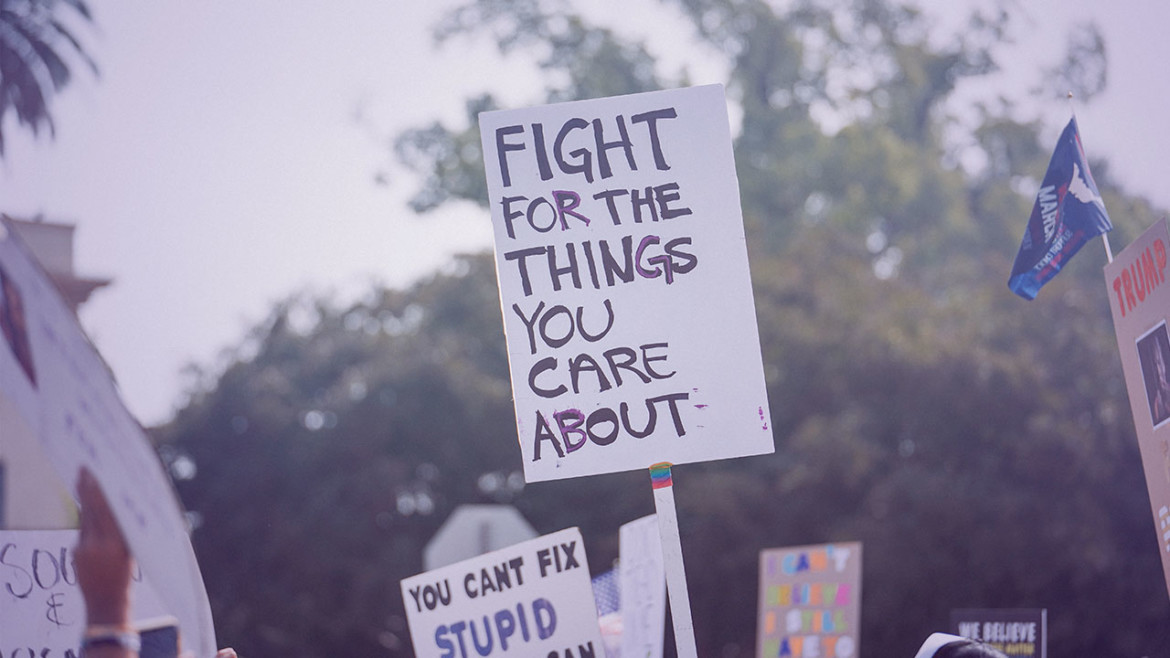Freedom of speech is a cornerstone of democracy. For us in Germany, this is a matter of course, enshrined in the Basic Law. But in the debates about fake news, right-wing populism and cancel culture of recent years, we too have come to realize what a shaky foundation this actually stands on and that it must be permanently demanded and defended.
In many other countries of the world, the situation is – to put it euphemistically – less comfortable. Not only journalists, but also writers, scientists and musicians are threatened, persecuted, imprisoned and even killed. Many have been missing for years. Countries such as China, Cuba, Turkey and Russia repeatedly make negative headlines and show how dramatic the situation is for freedom of expression in many parts of the world. And by all appearances, this situation is getting progressively worse.
INCREASING INTERNATIONAL PRESSURE

In order to draw attention to this and to increase international pressure on the states and rulers concerned, the “Day of the imprisoned Writer” was established as early as 1980, which takes place annually on November 15th. The initiator of the commemorative day is PEN, an association of writers with centers in over 140 countries around the world. They are united in PEN International.
On the “Day of the Imprisoned Writer” the international association brings the dramatic situation in some parts of the world into the public eye.
“Worldwide, the threat to authors and writers has unfortunately not diminished,” says Ralf Nestmeyer, vice president and Writers-in-Prison representative of the German PEN Center in the press release. “We observe with great concern the situation in all those countries where freedom of expression is suppressed and intellectuals are imprisoned.”
To make the threat tangible, PEN goes into five individual fates of writers and cultural workers who are currently in prison or missing because of their works in various countries.
IN PRISON FOR A SONG

One of them is the politician, lawyer and writer Selahattin Demirtaş, who has been imprisoned in Turkey since 2018. The reason for the sentence to a total of 4 years and 8 months is so-called “terror propaganda”. However, further proceedings are ongoing, which could mean up to 142 years in prison for Demirtaş, according to Tagesschau. Turkey’s Constitutional Court had ruled the conviction illegal, and the European Court of Human Rights has also been steadily demanding the release of the former HDP (Peoples’ Democratic Party) co-chair since 2018. Turkey ignores these demands.
In Cuba, the rapper Maykel Osorbo was arrested in May this year. The reason is his successful protest song “Patria y Vida” (Fatherland and Life), which is an ironic inversion of the Cuban revolutionary greeting “Patria o Muerte” (Fatherland or Death) and thus expresses clear criticism of the regime. The song became something of an anthem of the mass protests in Cuba in July and also went viral on social media internationally. The charges against him are “public disorder” as well as “resistance against police officers.” He has been denied a process until today, according to PEN. While Osorbo is on hunger strike in prison, his song “Patria y Vida” is nominated for a Grammy.
In Eritrea, every trace of a total of twelve authors has been missing for over 20 years. Here the PEN also uses the memorial day, in order to call attention to this terrible deplorable state of affairs. PEN renews its demand to the world community and especially to the European Union to “no longer ignore the brutal suppression of freedom of the press and freedom of expression in Eritrea”, as it says in the paper for the Day of Remembrance. There, the association also mentions the names of those abducted.
The other two individual fates concern Rahile Dawut, an academic who has been missing since 2017 and was conducting research on the Uighur minority in China, and Mohammed Al-Roken, who was sentenced to torture and imprisonment in the United Arab Emirates for being associated with a petition on political reform. These are just five examples that represent a much larger problem around freedom of expression and freedom of the press in many parts of the world. Already last year, Ralf Nestmeyer said in an interview with BR that the situation was getting worse from year to year and that democracy was coming under strain.
NGO WITH A LONG TRADITION
PEN International has a long history. It was founded in London as early as 1921, making it one of the oldest non-governmental organizations (NGOs) ever. At that time, the organization was simply called PEN, an acronym for Poets, Essayists, Novelists. In the first years after its founding in the UK, many other PEN centers were formed in Europe, including the PEN Center Germany in 1924, which is based in Darmstadt. At the time of National Socialism, the association was banned. In the 1930s, centers were added in other parts of the world, such as South America and China. Today, more than 140 such centers around the world are united in PEN International and are fighting for the freedom of the word.
PEN’s efforts cannot be overstated. Point one of its charter states: “Literature knows no national borders and must remain a currency common to all people, even in times of domestic or international upheaval.” We couldn’t agree more!






Leave a Reply